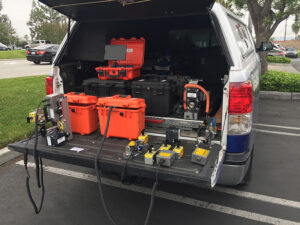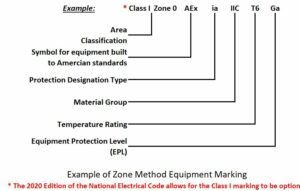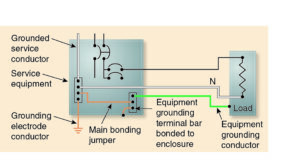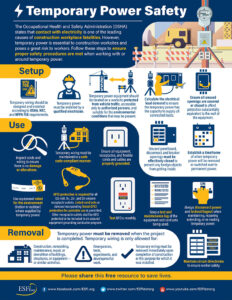By Steven J Abbott, REALTIME-SAFETY.com There is a growing overemphasis in the job planning process to simply use the information on an applied arc flash warning sticker. This all too often creates an unconscious disregard or forgetfulness to review other critical sources of information that are important to the electrical safety planning process and creates…
Read More >>By Justin Gaull, Contributor Smart companies know safety training is never complete. Ongoing training and testing are vital to safe, injury-free operations. Proper training (and re-training) on electrical safety equipment and procedures prevents injuries, protects electrical apparatus from damage, and promotes operational efficiencies. Ongoing training is also a requirement to meet code. NFPA 70E, (the…
Read More >>By: Robert Potter & Richard Holub, Contributors When it comes to using equipment in hazardous location classified areas that’s manufactured in other countries, what are the rules? What certifications are necessary? And how do you tell if equipment is safe for your application? Hazardous location classified areas contain flammable gas, liquids or vapors, combustible dusts,…
Read More >>By Dean Austin, Contributor Grounding, grounded, bonding, and bonded are all terms an electrician, electrical engineer, or facility manager is familiar with and use frequently, but what does it mean to properly ground electrical equipment? The initial thought is, it’s just connecting the branch circuit equipment grounding conductor to the electrical equipment grounding terminal. In…
Read More >>Scott Margolin, Co-Chairman, The Partnership for Electrical Safety At least half a million industrial electrical workers STILL are not provided arc rated clothing and other PPE they need to do the job safely. The Partnership for Electrical Safety (PES) has admirable goals, dedicated members, and bad timing. PES was founded in early 2020, with its…
Read More >>Contributed by Synergy Electric Although we rely on electricity to keep our facilities up and running, certain electrical conveniences can be hazardous to you and your employees’ safety. While it’s important to be conscious of these dangers, being informed and proactive can help you keep your facility safe. How to Avoid Electrical Hazards in Your…
Read More >>Brianne Deerwester, Contributor Electricity drives our everyday lives as demand and connectivity increase in this rapidly changing digital world. As our phones, homes, and workplaces get even smarter, a greater focus should be placed on utilizing electricity safely, especially on the worksite. Workplace electrical injuries and fatalities continue to disrupt the lives of workers and…
Read More >>By Ralph DeLisio, Contributor Every day it is estimated between 5-10 arc flash incidents occur in the U.S., according to the U.S. Bureau of Labor Statistics. That is approximately 1,800 to 3,600 each year. Most occur when something is moving. Opening a door, removing a cover, and operating a disconnecting means or a closing contactor are frequent…
Read More >>Leaders in Electrical Safety
• Aramark
• Bowtie Engineering
• Enespro
• Ericson
• I-Gard Corporation
• IRISS
• KERMEL, INC.
• Lakeland Industries
• MELTRIC Corporation
• National Safety Apparel
• National Technology Transfer
• Oberon
• Saf-T-Gard
• SEAM Group
Subscribe!
Sign up to receive our industry publications for FREE!














